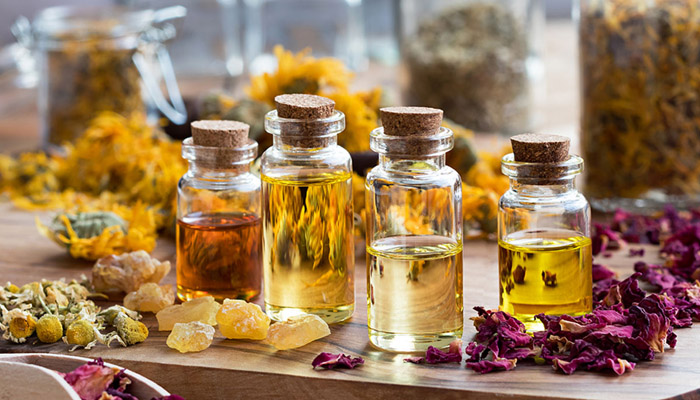
If you’ve ever walked past a bakery and instantly felt comforted by the smell of fresh bread, or caught a whiff of sunscreen that brought back childhood memories of the beach, you’ve experienced the incredible link between scent and emotion. Fragrance isn’t just about making a room smell pleasant — it’s a powerful tool that can influence your mood, focus, and even your overall well-being. And the best part? You can use this science in your everyday life to feel calmer, more energized, or more focused, simply by choosing the right scents.
Below, we’ll explore the most common questions people have about how scent impacts the mind and body — and how you can tap into this power daily.
1. Which scents are proven to reduce stress and anxiety?
When life gets overwhelming, the right scent can be like a gentle hand on your shoulder, reminding you to breathe. Lavender tops the list for stress relief — studies show it can help slow heart rate and lower blood pressure. Chamomile has similar calming effects, while sandalwood and cedarwood bring a grounding, earthy comfort.
If you deal with daily stress, consider using these scents in the evening through essential oil diffusers, pillow sprays, or even a warm bath with a few drops of oil. The key is consistency — over time, your brain will associate these scents with relaxation, making the effect even stronger.
2.Can certain fragrances really improve focus and productivity?

Absolutely. Just as some scents calm you down, others act like a mental “on” switch. Peppermint is famous for its refreshing and energizing properties, helping you feel alert without caffeine. Lemon, rosemary, and eucalyptus are also excellent for sharpening concentration and clearing mental fog.
Try diffusing these scents in your workspace during the morning or mid-afternoon slump. Another trick? Dab a drop of rosemary or peppermint oil on a cotton ball and keep it near your desk for a quick, brain-boosting inhale whenever you feel your focus slipping.
3. How does scent influence memory and emotional recall?
Our sense of smell is directly linked to the brain’s limbic system, which governs emotions and memories. That’s why the smell of rain might remind you of your hometown, or a certain perfume might transport you back to a first date. This phenomenon, known as the “Proust effect,” shows just how deeply scent and memory are intertwined.
You can use this to your advantage by pairing a specific scent with a positive activity or milestone. For example, burn a certain candle while working on a personal project — later, that scent can help you slip back into that productive mindset instantly.
4. What are the safest ways to use scents daily without overwhelming the senses?

More is not always better when it comes to fragrance. Overpowering scents can cause headaches, allergies, or simply fatigue your sense of smell. The safest approach is to start light — a few drops of essential oil in a diffuser, a single scented candle, or a subtle fabric spray on your bedsheets.
Also, give your senses a break. Just as you wouldn’t play the same song on repeat all day, avoid overexposing yourself to one scent. Switch it up every few days or use unscented breaks to “reset” your nose and keep scents effective and enjoyable.
5. Do natural essential oils work better than synthetic fragrances?
While both can create pleasant smells, natural essential oils often have therapeutic properties beyond their scent. For example, pure lavender oil not only smells relaxing but also contains compounds that interact with the nervous system to promote calm.
Synthetic fragrances, on the other hand, are mainly about aroma. They can be longer-lasting and more affordable, but they typically lack the chemical complexity that gives essential oils their potential wellness benefits. If you’re using scent for mood or health purposes, natural oils are generally the better choice — just be sure they’re pure, high-quality, and properly diluted.
6. How can I personalize scents to match my mood or goals for the day?

Think of scents as part of your daily “mood wardrobe.” Just like you choose clothes based on the weather or occasion, you can choose scents to match your energy needs.
- For a calm evening: Lavender, chamomile, or vanilla.
- For morning motivation: Citrus blends like lemon and grapefruit.
- For creative work: Jasmine, peppermint, or ylang-ylang.
- For grounding after a busy day: Sandalwood, patchouli, or frankincense.
Experiment until you find your personal favorites. You might even create signature scent blends for different parts of your day — a morning “wake-up” mix, a mid-day “focus” blend, and an evening “unwind” scent.
Final Thoughts

Scent is more than a background detail in our lives — it’s a direct line to the brain’s emotional and memory centers. By understanding which fragrances calm, energize, or inspire you, you can shape your day in subtle but powerful ways. From boosting your focus at work to winding down after a long day, scent can become a quiet partner in your well-being routine.
So the next time you light a candle, spritz a pillow, or step outside to smell the rain, remember: you’re not just enjoying a pleasant aroma — you’re tapping into one of the most primal, profound tools for shaping your mood and enriching your life.
